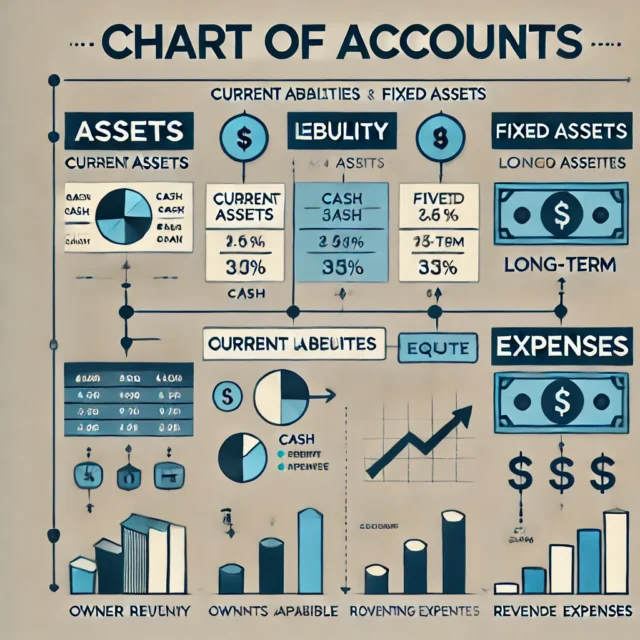As a small business owner, managing your finances effectively is crucial for growth and sustainability. However, many businesses face significant challenges when using QuickBooks Desktop, particularly as their operations expand. In this article, we’ll delve into the most common pain points associated with QuickBooks Desktop and explore how transitioning to QuickBooks Online can alleviate these issues.
Table of Contents
- 1 Limited Capabilities as Businesses Grow
- 2 Increasing and Unpredictable Costs
- 3 Poor Customer Support
- 4 Software Stability Issues
- 5 Complexity for Non-Accountants
- 6 Data and Reporting Limitations
- 7 Integration Difficulties
- 8 Inefficient Workflows
- 9 Transitioning to QuickBooks Online: A Solution to These Pain Points
- 10 Scalability and Industry-Specific Features
- 11 Cost-Effective and Predictable Pricing
- 12 Superior Customer Support
- 13 Software Stability and Performance
- 14 User-Friendly Interface
- 15 Customizable Reports and Data Access
- 16 Seamless Integration
- 17 Efficient Workflows
- 18 Before we go
- 19 Key Takeaways
Limited Capabilities as Businesses Grow
One of the primary concerns with QuickBooks Desktop is its inability to fully accommodate expanding labor forces and international operations. As your business grows, you may find that the user limits imposed by QuickBooks Desktop stifle your progress. For instance, if you have multiple employees who need access to the accounting system, you might hit the user limit quickly, forcing you to purchase additional licenses or upgrade to a more expensive plan. Moreover, QuickBooks Desktop often lacks industry-specific features that are essential for certain types of businesses. For example, if you’re in the retail sector, you might need advanced inventory management features that aren’t available in the Desktop version. This limitation can lead to manual workarounds, which are time-consuming and prone to errors.
Increasing and Unpredictable Costs
The costs associated with QuickBooks Desktop can be a significant burden for small businesses. As your business needs expand, you may need to purchase costly add-ons and integrations to keep up. These add-ons can quickly add up, making it difficult to budget for your accounting software. Additionally, hardware maintenance costs for the Desktop version can be substantial. Since QuickBooks Desktop requires a physical installation, you’ll need to ensure your hardware is compatible and maintained regularly. This includes upgrading your hardware periodically, which can be expensive and time-consuming.

Poor Customer Support
Customer support is another area where QuickBooks Desktop often falls short. Long wait times to reach support representatives, lack of product knowledge among support staff, and difficulty in escalating issues can be frustrating and inefficient. These inconsistent support experiences can leave you feeling stranded when you need help the most.
Software Stability Issues
Software stability is a critical aspect of any accounting system. However, QuickBooks Desktop is prone to system crashes, file size limitations, and restrictions on the number of transactions. These issues can disrupt your workflow and cause significant delays, especially during critical periods like tax season or financial reporting.
Complexity for Non-Accountants
For non-accountants, QuickBooks Desktop can have a steep learning curve. Fixing errors and navigating more advanced features beyond basic accounting can be challenging. This complexity often leads to mistakes and inefficiencies, which can have serious financial implications for your business.
Data and Reporting Limitations
QuickBooks Desktop also has limitations when it comes to customizable reports and accessing business data. If you need reports outside of standard accounting templates, you might find it difficult to generate them. This lack of flexibility can hinder your ability to analyze your business data effectively, making it harder to make informed decisions.
Integration Difficulties
Integrating QuickBooks Desktop with third-party applications can be problematic. Syncing data and performing custom integrations can be time-consuming and expensive. These integration difficulties can lead to disconnected data across systems, causing inefficiencies and potential errors.
Inefficient Workflows
Finally, QuickBooks Desktop often requires manual workarounds for certain tasks. This can lead to inefficient workflows and disconnected data across systems. For example, if you need to manage inventory or track mileage, you might have to use separate tools or spreadsheets, which can be cumbersome and error-prone.
Transitioning to QuickBooks Online: A Solution to These Pain Points
Given the numerous challenges associated with QuickBooks Desktop, transitioning to QuickBooks Online can be a game-changer for small businesses. Here’s how QuickBooks Online addresses each of these pain points:
Scalability and Industry-Specific Features
QuickBooks Online is designed to grow with your business. It offers unlimited user access, making it ideal for expanding labor forces and international operations. Additionally, QuickBooks Online provides industry-specific features that cater to various sectors, ensuring you have the tools you need to manage your business effectively.
Cost-Effective and Predictable Pricing
QuickBooks Online offers flexible and predictable pricing plans that fit different business needs. You don’t need to worry about purchasing costly add-ons or maintaining hardware, as everything is cloud-based. This reduces your overall costs and makes budgeting easier.
Superior Customer Support
QuickBooks Online provides superior customer support compared to the Desktop version. With 24/7 support, you can get help whenever you need it. The support team is knowledgeable and responsive, ensuring that your issues are resolved quickly and efficiently.
Software Stability and Performance
QuickBooks Online is cloud-based, which means you don’t have to worry about system crashes or file size limitations. The software is designed to handle a high volume of transactions without any restrictions, ensuring smooth operations at all times.
User-Friendly Interface
For non-accountants, QuickBooks Online offers a user-friendly interface that is easy to navigate. The software is intuitive, and fixing errors is much simpler compared to the Desktop version. This reduces the complexity and makes it easier for anyone to manage their finances effectively.
Customizable Reports and Data Access
QuickBooks Online provides customizable reports that go beyond standard accounting templates. You can access and analyze your business data easily, making it simpler to make informed decisions. The software also integrates seamlessly with other tools, ensuring that your data is connected and up-to-date.
Seamless Integration
Integrating QuickBooks Online with third-party applications is straightforward. The software syncs data automatically, eliminating the need for manual workarounds. This ensures that your workflows are efficient and your data is accurate.
Efficient Workflows
QuickBooks Online automates many tasks, reducing the need for manual workarounds. For example, you can track mileage, manage inventory, and send invoices all within the same platform. This streamlines your workflows and ensures that your data is consistent across all systems.
Before we go
Managing your finances effectively is crucial for the success of your small business. While QuickBooks Desktop has its limitations, transitioning to QuickBooks Online can alleviate many of the pain points associated with the Desktop version. With its scalability, cost-effective pricing, superior customer support, software stability, user-friendly interface, customizable reports, seamless integration, and efficient workflows, QuickBooks Online is the ideal solution for small businesses looking to grow and thrive.
Key Takeaways
- Scalability: QuickBooks Online offers unlimited user access and industry-specific features, making it ideal for growing businesses.
- Cost-Effective: Predictable pricing plans and no need for hardware maintenance reduce overall costs.
- Superior Support: 24/7 knowledgeable support ensures quick resolution of issues.
- Software Stability: Cloud-based software eliminates system crashes and file size limitations.
- User-Friendly: Intuitive interface makes it easy for non-accountants to manage finances.
- Customizable Reports: Access and analyze business data easily with customizable reports.
- Seamless Integration: Automatic data syncing with third-party applications.
- Efficient Workflows: Automation of tasks reduces manual workarounds and ensures consistent data.
By transitioning to QuickBooks Online, you can overcome







